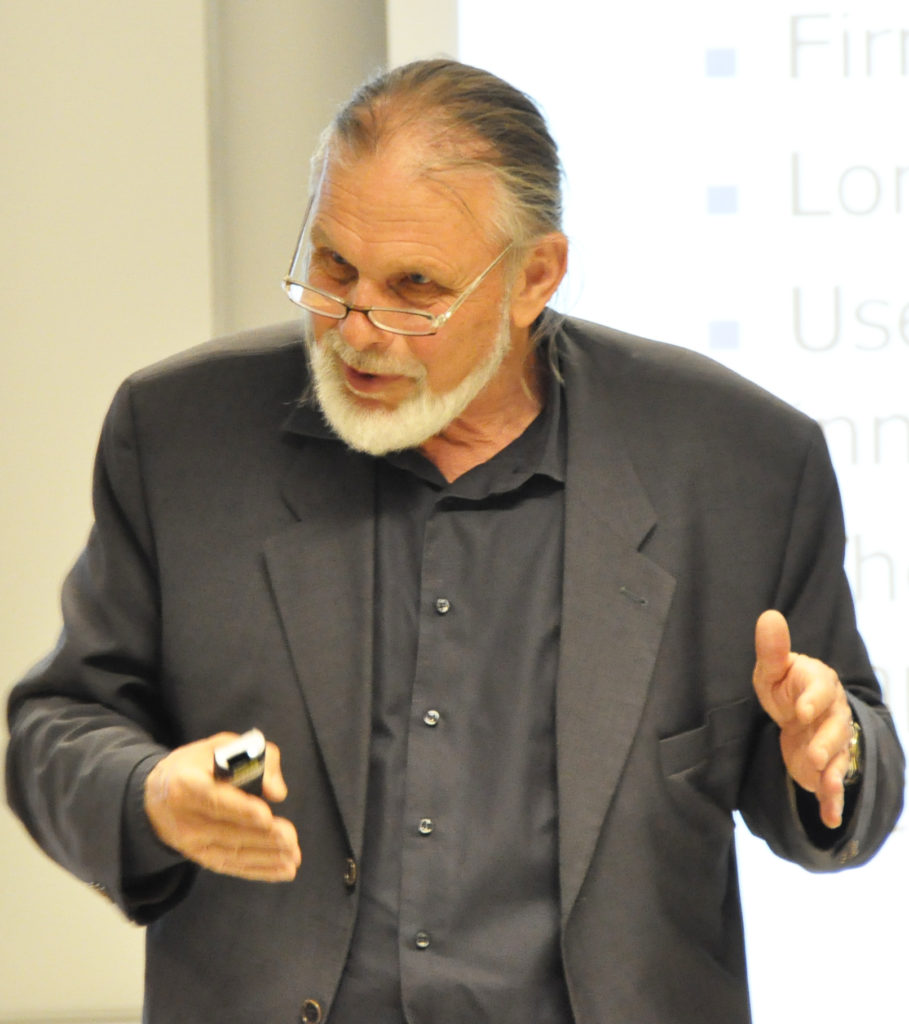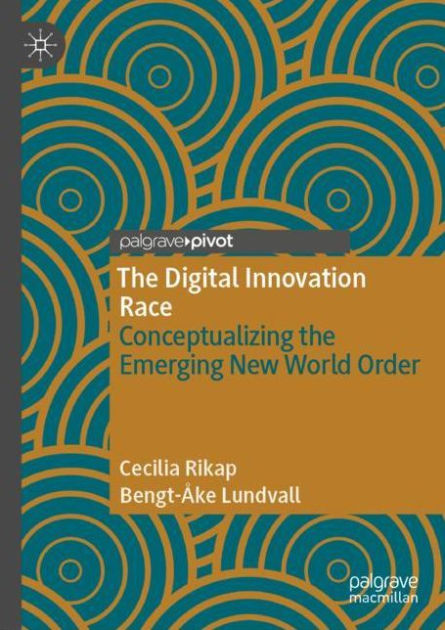Palgrave Pivot, Palgrave Macmillan 2021
By: Cecilia Rikap and Bengt-Åke Lundvall
The main theme of this book is digital transformation, with artificial intelligence at its core. It shows how this transformation upsets the world pecking order as China catches up with the US and as tech giants from the two countries take on key roles in the digital innovation race.
In order to capture what is going on, the book develops new and further develop old concepts. Intellectual monopolies, harvesting rents through the expanding and systematic control of knowledge have become major geopolitical players challenging the sovereignty of nation states. Each of them has built its own world-wide corporate innovation system, integrating and subordinating other organizations that produce new knowledge. As lead firms, tech giants profit from turning that knowledge into intangible assets. The tech giants’ technology efforts converge around a technological trajectory, with artificial intelligence at its core. They have become key actors in the AI-technological innovation system through their control of black-box technology used to exploit the fruits of user learning in connection with clouds services.
The book shows that the outcome of the innovation race will be determined by the complex and contradictory co-evolution of national and corporate innovation systems. One major contradiction is between the global outreach of the tech giants’ market, production and innovation activities and the growing importance of techno-nationalism as a strategy to reinforce core state’s power. The attempts of EU to regulate tech giants and build competitive strength in the field of digital services illustrate the difficulties in overcoming this contradiction.
Innovation studies and innovation policy have predominantly regarded intellectual monopolies as temporary, and innovation-based competition as a positive sum game. The analysis of the tech giants and the digital innovation race point to a darker side of innovation as a process where the richest harvest intellectual rents from the poor. The book ends with sketching alternative scenarios and political strategies.
***
Cecilia Rikap holds a PhD in economics from the Universidad de Buenos Aires. She is a permanent Lecturer in International Political Economy (IPE) at City, University of London, programme director of the BSc in IPE at the same university and a tenure researcher of the CONICET, Argentina’s national research council. She is associate researcher at COSTECH lab, Université de Technologie de Compiègne. She is also a consultant for Argentina’s Ministries of Health and Productive Development. Cecilia’s research focuses on the political economy of science and technology. https://sites.google.com/view/ceciliarikap/home

Bengt-Åke Lundvall is professor emeritus in economics at Department of Business and Management at Aalborg University and at Department of Economic History, Lund University. His research is organized around a broad set of issues related to innovation systems and learning economies. Since 1988, he has published more than 200 publications as books, journal articles, and book chapters (see www.vbn.aau.dk).


